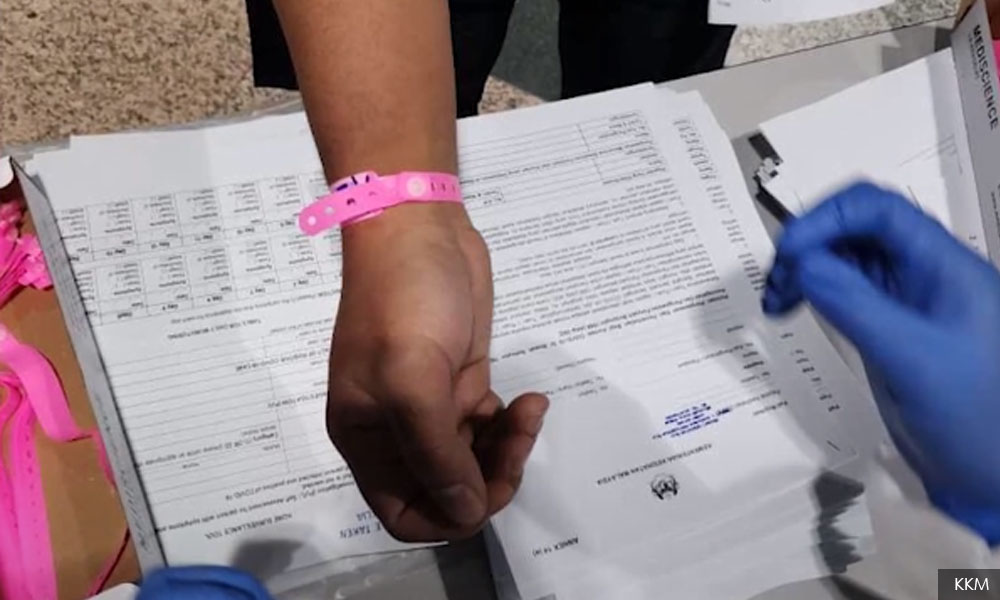Health authorities recently ordered asymptomatic Covid-19 patients to stay home and report their health status online instead of going to Covid-19 Assessment Centres (CACs) to get themselves checked.
While this may ease congestion at the centres, a health expert warns of bigger trouble later.
Speaking to Malaysiakini, the source claimed an earlier decision to push Category 1 (no symptoms) and Category 2 (symptomatic without lung infection) Covid-19 patients to home quarantine led to many only seeking treatment after their health already reached a "really bad condition".
This led to hospitals in the Klang Valley being overwhelmed with serious cases, including many needing oxygen tanks and life support machines, said the source who is a senior health official involved directly in pandemic management.
"Often, these patients come when it is already too late.
"This is the danger of letting Covid-19 patients stay home and rely on self-checking. Especially those who may not know how to assess their own health situation, or are undisciplined.
"Some had a lackadaisical attitude, where they just didn't feel like going to the hospital or were just lazy to get themselves checked. But later when they realise they are really in deep trouble, only then they would rush to hospitals," said the doctor.
The Klang Valley has been recording a consistently high number of daily Covid-19 cases in the past three months which resulted in major hospitals running out of beds, including for intensive care treatment.
Health authorities have set up many CACs including mega-sized ones in the Klang Valley, which are intended to assess Covid-19 patients to determine whether they should be sent home for self-isolation, put in Covid-19 Quarantine and Low-Risk Treatment Centres (PKPCs), or hospitalised.
While mega CACs can cater to thousands of patients daily, they have reportedly been overwhelmed due to the surge in the number of cases.
Emotional intelligence
Following this, the Greater Klang Valley special task force last month told asymptomatic patients to report their health status online through virtual CACs.
It requires positive cases to monitor their health using a Home Assessment Tool available on the MySejahtera mobile application, which is monitored by a virtual CAC and CAC call centre.
"The intention is to reduce congestion at (physical) CACs. However, we must also see the effectiveness of using this home assessment tool.
"If the majority of patients who come to the hospital are showing advanced symptoms, which means they came in at a late stage, then what does it show? Should we continue to use online assessment?" asked the source.
According to the official, who spoke on condition of anonymity to avoid possible repercussions from higher-ups, not everybody has the capability of doing self-monitoring.
Some patients may appear healthy at first but had to be warded in ICU due to failure to identify signs that their health has deteriorated, the source added.
For the record, Category 1 and 2 patients suffer milder symptoms, Category 3 patients develop some form of pneumonia but can still breathe on their own, those in Category 4 need oxygen supply, while Category 5 patients need a ventilator to breathe.
"I believe CACs must have a mechanism to call and check on each patient every day, or every other day. If they fail to report in, go and check on them.
"Those who check on patients should also have some form of emotional intelligence, to be able to gauge if an individual would be able to follow instructions for self-check, or if they have potential to default.
"If it were up to me, I would order those who are not reliable for home quarantine to be sent to the quarantine centres. Regardless if they are asymptomatic.
"At least our hospitals would not see so many cases like today, where most of those who come in are already facing difficulty breathing and their situation deteriorates really quickly."
The official told Malaysiakini they are now seeing more critical patients from younger age groups, compared to previous waves of the pandemic.
Besides the issue of being able to self-assess one's health, it was also pointed out that there are individuals, especially in the older age group, who do not know how to access the MySejahtera application.
In one case, Subang Jaya assemblyperson Michelle Ng Mei Sze recently encountered an old lady who tested positive for Covid-19 but could not get the help she needed due to illiteracy.
This caused the woman to be unable to update her health status online. Compounded by the fact that many hospitals are full, she was unable to get admitted to the hospital despite having developed a breathing difficulty. - Mkini





No comments:
Post a Comment
Note: Only a member of this blog may post a comment.